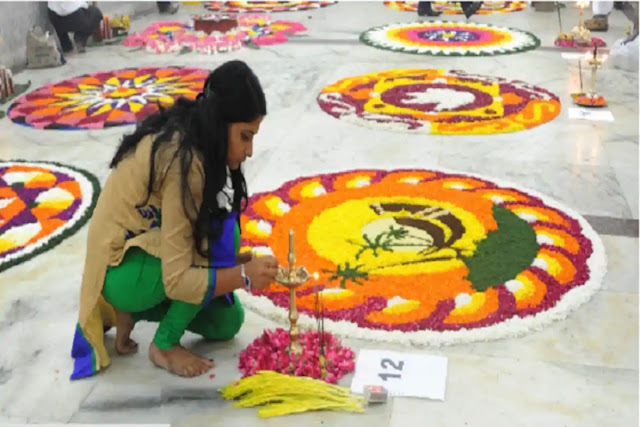Onam of the Demon King
 |
| Image Source: India.com |
Kerala is
celebrating Onam, the grandest festival of the state. Onam is a festival of
colours, flowers, music and abundance. In my childhood, Onam was projected as a
harvest festival thus making it absolutely secular. The mythical legend of
Mahabali (or Maveli as he was popularly and affectionately called by Malayalis)
played relatively little role in the actual celebrations. The festive mood
tended to supersede the legend though images of a pot-bellied Maveli made their
presence felt ubiquitously.
Perhaps
people aren’t too keen to scrutinise the Maveli legend because the legend
doesn’t put the gods in any good light. Maveli is an Asura (demon) king who
turns out to be far better than the gods. The gods, therefore, become jealous
of him and an avatar of Vishnu descends to decimate the beloved king of the
humans.
In
her scholarly book, The Hindus – An Alternative History, Wendy Doniger
says that the relationships between humans, gods, and asuras in the history of
Hinduism can be grouped into three alliances. At first, in the Vedic period,
the gods and asuras are opposed to each other and the gods prefer to unite with
humans against the asuras.
The
second alliance begins in the Mahabharata and continues through the
Puranas. In this period, certain asuras and even humans become threats to the
gods by virtue of their ascetic powers.
In
the words of Doniger, “The balance of power changed again when, in the third
alliance, devotion (bhakti) entered the field, repositioning the Vedic concept
of human dependence on the gods so that the gods protected both devoted men and
devoted antigods. This third alliance is in many ways the dominant structure of
local temple myths even today.”
Maveli
belonged to the second phase. He was a threat to the gods because of his
goodness. To be too good is to tempt the gods. And the gods sent him to the
netherworld but granted his wish to return once a year to visit his beloved
subjects. Onam celebrates that annual return of his.
Personally,
I find Maveli a charming figure merely because he is the quintessential rival
of the gods. He shows that even the demons (asuras) can be better than the
gods. He hurls a huge question mark on the very worth of the gods. He renders
divinity ridiculously absurd. This is what makes Maveli a real hero. This is
also why he should come every year to remind us of the absurdity of our gods
and their religions.
Previous
years’ posts on Onam
Dear Maveli
[2018]
The
abundance of Onam [2017]
Onam
– celebration of human longing for utopia [2016 – most read]
PS. Floods
subdued Onam celebrations in 2018 and 2019. Covid did something worse in 2020.
Maveli would do better to stay in his Patalam. What we have done to our planet
and its environment is far worse than what the gods ever did to anyone, even to
Maveli. We are the Vamanas now, sending goodness down to the netherworld day in
and day out.
Onam transcends all religious barriers
ReplyDeleteThat's one of the best things about the festival. Unfortunately BJP is trying to destroy that secular nature.
Delete